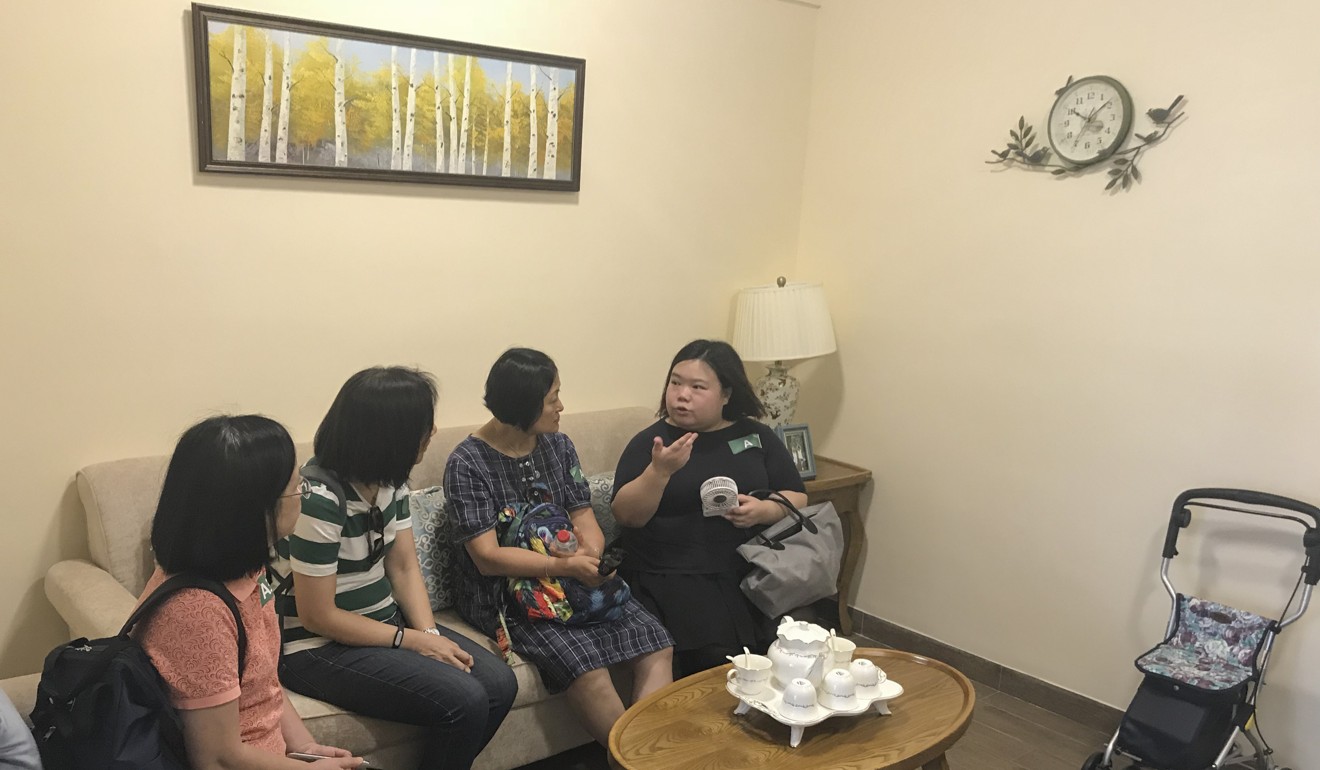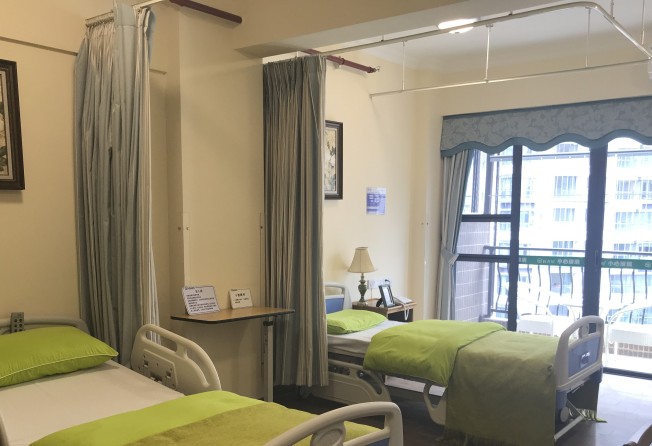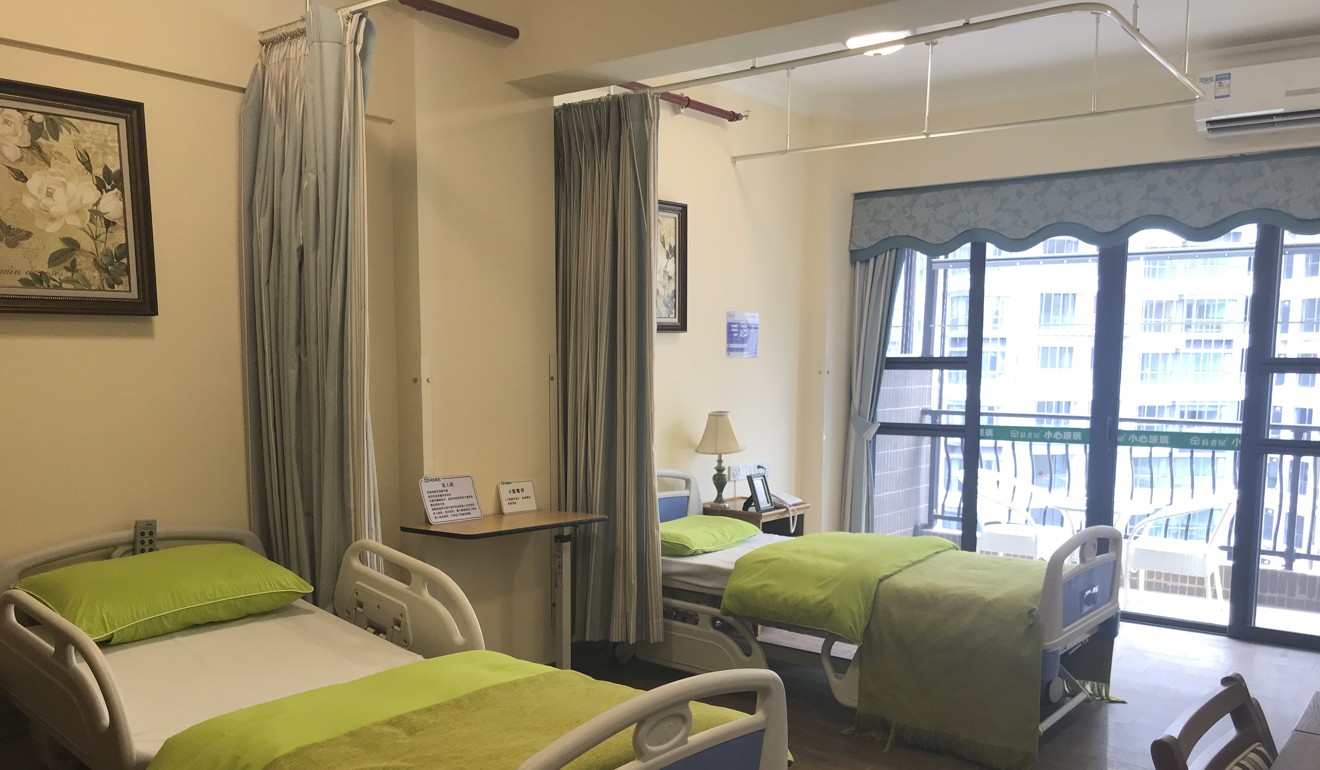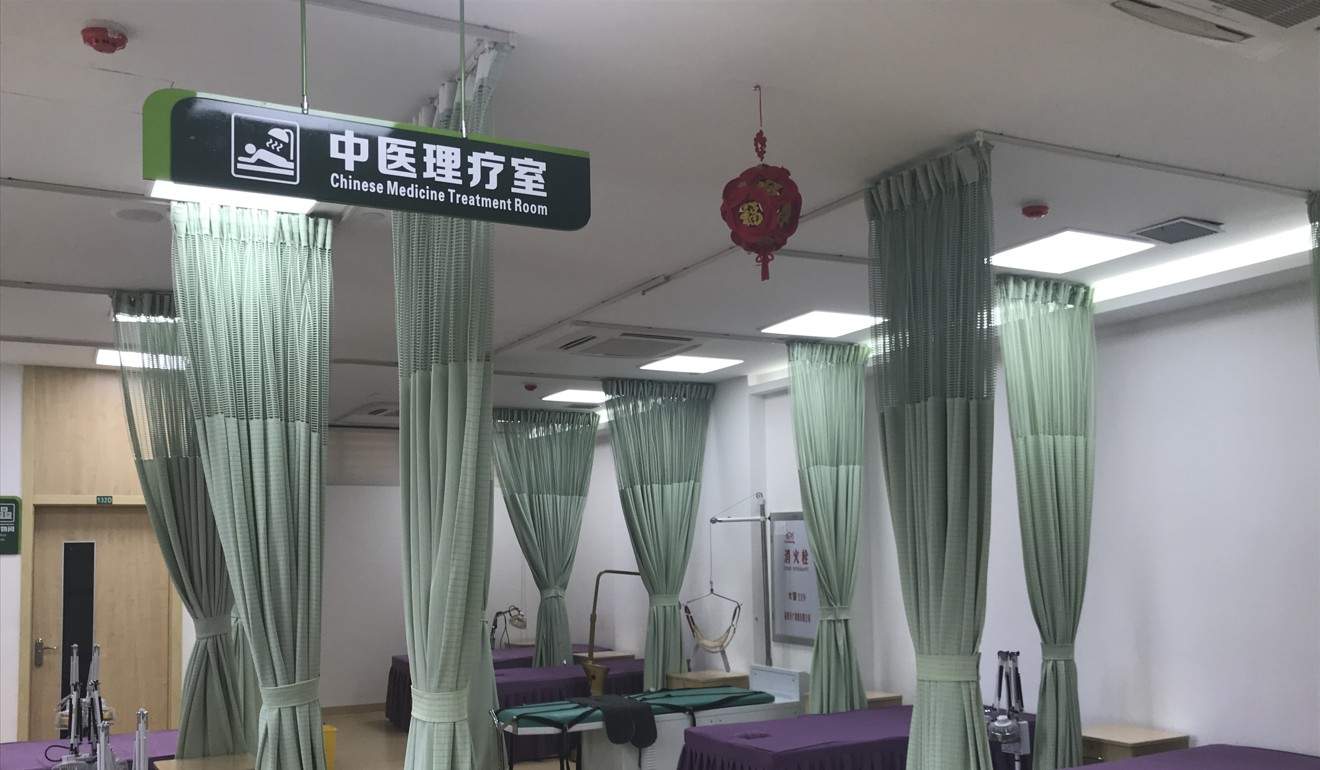
Care homes don’t have to feel like prisons, says Hong Kong boss of Chinese facility that wants to tap into growing demand from city’s ageing population
CP Homes chief executive Samuel Cheung brings private hospital know-how to development in Huizhou that is attracting interest from Hongkongers

Early one weekday morning a tour group of Hongkongers in their mid-50s and 60s gathered in Lo Wu – their destination, a care home in the mainland city of Huizhou.
The trip had been arranged by CP Homes, a United States company, which partnered with Country Garden, a Chinese property developer, to build an 18-floor facility at a housing estate in Huidong county, where one-third of the estate’s homeowners are from Hong Kong.
The US firm opened the care centre in September last year, despite the lukewarm response of Hong Kong residents to the government’s Pilot Residential Care Services Scheme in Guangdong, which encourages the city’s senior citizens to consider moving into care homes across the border.

Of the two centres involved, in Shenzhen and Zhaoqing, only 180 of the 37,000 Hong Kong seniors waiting for a subsidised place in a residential care home have opted to go over the past four years.
However, Samuel Cheung Man-king the CP Homes chief executive and a former general manager of St Paul’s Hospital in Hong Kong, is confident the company can capture a share of the growing care home market.
“Retirement life is about a living culture,” he said. “It should be nothing about an impression of imprisonment. We are running under the management style of Hong Kong hospitals, with customer focus and a total-care system.”
Cheung added that about 40 local doctors were in the home’s health care network, providing diagnostic services for customers online.
With technology and professional service, Cheung believes a person’s twilight years can still be great ones. Aiming at a higher-end customer, he said the company would arrange cruises for residents, with a team of medical professionals accompanying and taking care of them.
The centre has 50 residents, with between five and 10 from Hong Kong. When the Post visited one Friday in June, staff said the Hong Kong residents had returned to the city for a holiday.
The building has its own hospital on the lower floors, with a Chinese medicine clinic, dental clinic, a medical care and wellness centre.

Members of the tour group eagerly tried out the diabetes tests offered at the clinic.
“Here is more like a university student hostel, with people from the same age group living together,” a staff member said, as she guided the group around rooms ranging from singles and doubles, to suites on the upper floors.
Facilities also include designated bathrooms for wheelchair users, 24-hour call and care service, and on-duty nurses on each floor.
Residents are able to buy a room for $2 million yuan ($US299,000) with service vouchers lasting for 25 years. Monthly rents range from $5,350 yuan to more than $15,000 yuan, depending on types of rooms and services.
Iris Wong and her husband were among the tour group, and travelled to Huizhou to look for a home for Iris’ father. Presently cared for by a maid, the couple wanted options in case his condition deteriorated.
The pair noted that a single room in some private care homes in Hong Kong could cost HK$17,000 (US$2,100), almost triple the price at the CP Home facility.
Another member of the group, Ms Wong, said she wanted to explore her options after experiencing how her father went through his final days in a local care home.

“The ones [care homes] in Hong Kong give people a feeling that you can no longer leave once you are living there,” she said.
Her thoughts were fully understood by Cheung, who stressed the importance of providing the elderly with more choices.
“Hongkongers love travelling around,” he said. “Why consider that someone is given a “death penalty” because they suffered a stroke?”
Ultimately, it was too early for either Wong to make a decision. However, all agreed that transport and medical service would be crucial factors when the time came.